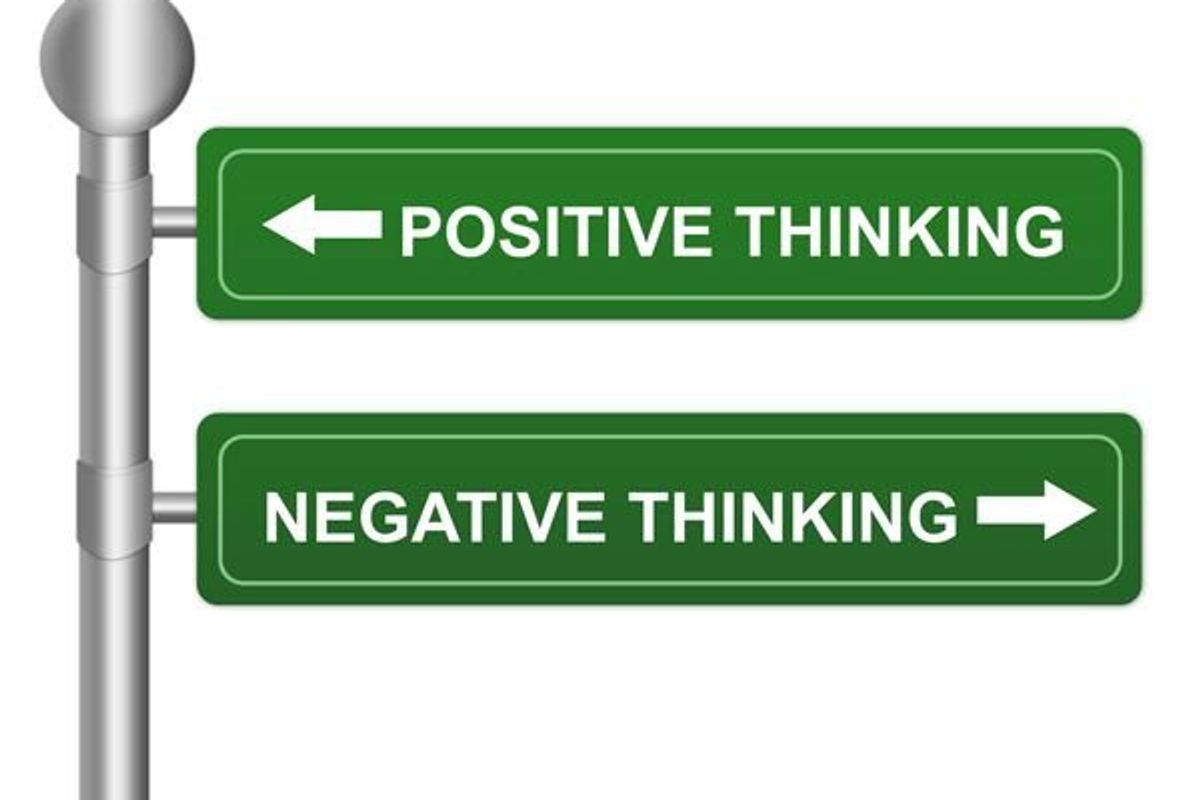By Amanda Macmillan, happify.com
Visit happify.com for fun activities that help you squash negative thoughts.

"It's like a needle in a groove," says Guy Winch, PhD psychologist and author of Emotional First Aid: Practical Strategies for Treating Failure, Rejection, Guilt and Other Everday Psychological Injuries. "As the groove gets deeper and deeper, the needle has a harder time getting out of the groove." What's more, rumination can actually make you more angry or upset than you were originally, because the issue becomes magnified in your mind.
Luckily, there are a few techniques that can help you stop dwelling and refocus your mind on something positive, says Winch; it just takes a bit of distraction and a healthy dose of willpower.
Go Shopping in Your Mind
One distraction trick Winch recommends is to visualize yourself in the grocery store. "Try to picture all of the items on one shelf in the store, and the order that you see them in," he says. Don't do a lot of food shopping? Think about something else that requires concentration: the order of books on your bookshelf, or the order of songs in an album or playlist you like to listen to, for example. You don't have to do it for long—maybe 30 seconds or a minute, but the key is to be disciplined about it and do it each time that negative thought comes back—even if that means doing it 20 times an hour. "It may seem temporary, but if you reinforce these patterns enough, it can improve your mood and your decision making abilities," says Winch. "You can actually train your brain to go in a different direction when these thoughts come up."
Keep Positive Company
If you can't get troublesome feelings out of your mind, it may have something to do with your social circle. In a 2013 study, Notre Dame researchers found that it's common for college students to pick up rumination-like behaviors from their roommates. Because rumination often involves worrying and thinking aloud, it's a habit that can be easily mirrored by other people, the researchers say. Avoid perpetually negative people when you can, or at least be aware of what habits might be rubbing off on you.
Physically Throw Them Away
It may sound crazy, but clearing your head of a nagging thought could be as easy as writing it down on a piece of paper—and tossing it in the trash, according to a 2012 Ohio State University study. People who wrote down negative things about their bodies and then threw them away had a more positive self image a few minutes later, compared to those who kept the papers with them. “However you tag your thoughts—as trash or as worthy of protection—seems to make a difference in how you use those thoughts,” says study co-author and psychology professor Richard Petty, PhD. Don't want to waste paper? Doing this exercise on the computer, by dragging a text document into the "trash can," worked too.
Have a Cup of Tea
Negative thoughts can occur for many different reasons—but if yours are focused on feeling lonely, you may gain some comfort by warming up, literally. Yale researchers discovered in 2012 that people recalled fewer negative feelings about a past lonely experience when they were holding a hot pack. (They also found that lonely people tend to take longer hot showers.) Substituting physical warmth for emotional warmth can be a quick fix, the researchers say—just don't let it take the place of real human interaction in the long run.
Reframe Your Situation
"If your urge to ruminate is very strong, distracting yourself isn't going to be easy," says Winch. "So before you try, it may be necessary to reframe or reappraise the situation in your head. If you get stuck in the airport for hours because of a cancelled flight, for example, don't think of what you're missing out on. Instead, see it as a chance to get work done, or to call your parents or an old friend. Once you've successfully reframed your situation, it may be easier to distract yourself with a visualization exercise (like Winch's "shopping list" exercise), a book or crossword puzzle, or a quick stroll.







